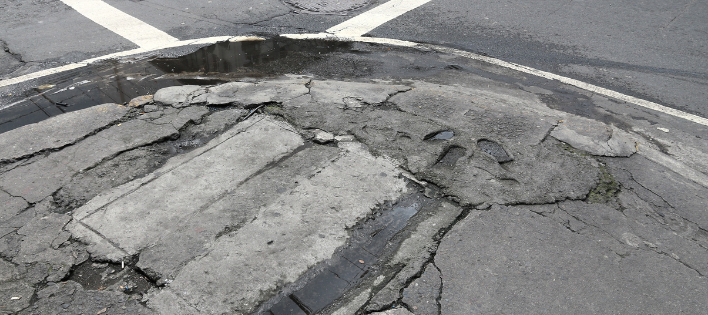Municipal Slip and Fall Cases
Have you slipped and fallen on a snow and/or ice-covered sidewalk or walkway resulting in physical injury? After attending the hospital or your family doctor for immediate treatment you must then determine whether your accident happened on city property or private property. Notice periods for private and municipal property accidents are very different. When in doubt serve notice on both the municipality and the private property owner to ensure your rights are preserved. You may not know immediately if your injuries are serious or permanent, but this must not keep you from serving written notice of municipal slip and fall cases. The extent of your injuries is not expected to be known quickly but notice of your accident to the at-fault party is.
The Municipal Act, 2001 (the “Act”) s. 44(10) sets out the need for an injured person who intends to a make a personal injury claim to serve written notice on the municipality within 10 days of the accident occurring. Your written notice must be hand-delivered or served by registered mail. It should include your name and contact information, the date and time of the accident, location of your accident, description of how the accident happened and the details of your injuries as you know them.
Notice Period
Failure to provide notice of your accident within the 10-day required notice period is not a bar to a personal injury claim. S.44(12) provides an injury claim is not barred if the injured person who fails to provide notice of the claim within the 10-day notice period can provide a reasonable excuse for failing to serve notice in time, and the municipality is not prejudiced by the late notice. At trial, the Court will assess the sufficiency of your excuse and whether the municipality was prejudiced in its defense of the claim by your late notice of claim. The Court will consider many factors and its decision will be based on the specific facts of your case. The Court will consider the length of delay in service notice; whether you were capable of forming an intention to serve notice within the notice period; the seriousness of the injury and the length and type of injury; and any delay in understanding the seriousness of the injuries.
The Court will determine whether the municipality was prejudiced by delivery of late notice. Some ways to negate prejudice is to preserve any evidence from the time of the accident including photographs taken, witness identities or statements, and your footwear.
Please be mindful that the Court does not consider ignorance of the notice requirement a reasonable excuse by itself in failing to serve notice of the accident. The Courts have given a wide or liberal interpretation of the statute to the benefit of the injured person but it is much wiser to serve notice immediately and assess your claim later than to be hopeful that the Court will find in your favor with respect to the notice period.
What Do You Do?
Serving notice of your accident is the first hurdle.
The second hurdle is to establish that the accident site was in disrepair or unmaintained to a level of gross negligence. The Act s. 44 (3), (9) act as defenses to liability for the municipality, in that the municipality did not know or could not have reasonably been expected to know of the state of disrepair or that it took reasonable steps to prevent the deficiency from occurring, meaning its conduct cannot be considered to be gross negligence. At trial, the plaintiff (injured person) must prove on a balance of probabilities that the sidewalk was in a state of disrepair and in so doing, the onus then shifts to the municipality to prove it was not grossly negligent.
Municipal slip and fall cases are difficult given the high threshold of gross negligence liability.
In determining whether the lack of maintenance of the sidewalk reaches the level of gross negligence, the Court will consider whether the municipality had reasonable policies in place; whether they followed their own policies; and whether the municipality kept reasonable records to evidence their claims of proper inspection and maintenance of the accident location.
Get Help
Municipal notice of a slip and fall accident is 10 days. Notice on private property is 60 days. When in doubt serve both immediately. You will likely need help from a knowledgeable lawyer to do so.















